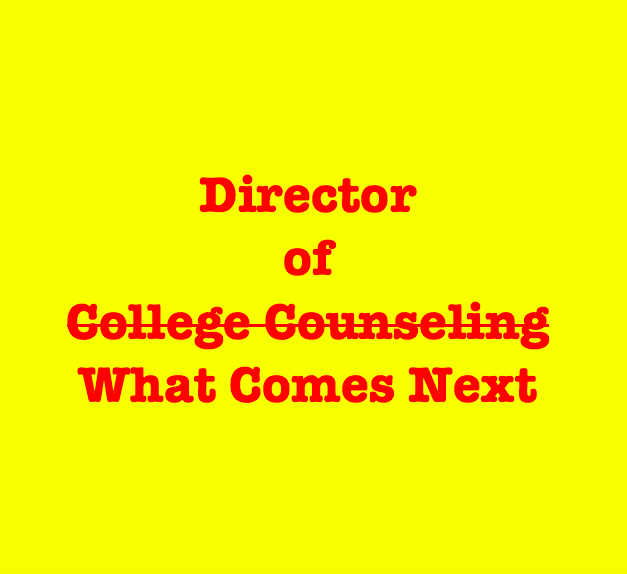
A Note from the Publisher:
I’m honored to share the below powerful first semester reflection from a current college student who has generously allowed me to publish her words here. For privacy and anonymity reasons, this student has asked to be identified simply as KMR. KMR provides a candid and insightful look at navigating college with a chronic illness, which is an experience far more common among students than many realize; yet, it’s one that often remains unspoken.
What strikes me most is her generosity in putting this together: her hard-won lessons could ease the path for other students facing similar realities. In her own voice, KMR offers practical advice drawn directly from her first semester, and her reflections remind us that college with a chronic condition is demanding, but it is also navigable with preparation, self-awareness, and support.
Whether you’re a high school senior planning ahead, a current student adjusting to new challenges, or someone supporting a loved one in this situation, KMR’s words provide valuable perspective and encouragement. Thank you, KMR; your kindness in sharing this openly will help others feel less alone as they navigate the challenges and opportunities of college. – Craig Meister
Navigating Chronic Illness in College by KMR
Living with a chronic illness in any situation is stressful. In the context of college, the best analogy an upperclassman with chronic health issues gave me was the following: “a disability is like an extra class or part-time job.” The amount of time allocated towards battling symptoms, handling medical care, balancing medication side effects, and coordinating accommodations takes a great deal of physical and mental energy. This time equates to taking an extra course, or having a part-time job. With a chronic health condition, the college experience is intertwined with managing health. Here are some tips:
General:
- Establish Healthcare Before Arriving (if applicable): Transferring healthcare can be a long, logistical process to deal with. If you need to transfer healthcare to a new location, starting as early as January can be useful, especially if there are long waitlists. In addition, if you are away from home for college, make sure you have your medications transferred to a local pharmacy; sometimes it can also be helpful to arrange delivery. If you use big chain pharmacies like CVS, there is often an option to easily change your medications to any CVS around the country.
- Pack Cold/Flu/General Meds: Germs are rampant at college, and every first year student gets sick (the infamous “Freshman Flu”). This is hard for every Freshman, and even more so for students already dealing with chronic health issues. To help this, be as prepared as possible: pack Ibuprofen, Tylenol, Decongestant, Mucinex, Benadryl, vitamins, cough drops, etc or whatever common meds you take when you are sick. Additionally, pack anything else you anticipate you will need, so you don’t have to worry about it during the semester.
Academic:
- Choose a Manageable Courseload: Chronic illness affects your ability to work in various ways. It’s important to understand your personal workflow when choosing courses, so that you make smart decisions that allow you to succeed academically and not burn yourself out. This does not mean you should not pick challenging classes, or a rigorous major. It just means you need to understand your strengths and limits, and plan accordingly.
- Work Ahead on Assignments (Within Reason): With everything that comes with managing a health condition (eg, spontaneous flare ups, medication struggles, etc) making an active effort to be ahead on coursework can alleviate stress on harder days. Further, being organized is helpful when coordinating new deadlines and make-ups with instructors, in case you need to reschedule assignments/exams due to illness. However, make sure not to work so hard at being ahead that you burn yourself out.
- Find Your Allies: Every college in the United States should have some type of Student Disability Services department (SDS) which is required by federal law, to facilitate accommodations. Often, students find SDS advisors to be their best allies to help talk with instructors who are not giving students their accommodations, and provide general advice/support. However, outside of SDS you can find many support systems: certain professors, upperclassmen, friends, etc. Finding your allies is essential to making sure you get the help you need—do not ever be afraid to ask for help. Even if someone says no, you have to (appropriately) try. In most cases, something can be done to partially help. And, if not, at least you have made someone aware of an issue, which may benefit future students.
- Take Advantage of Office Hours/Help Sessions: All students struggle with class content; Office Hours, TA Sessions, and tutoring are an excellent way to get help and keep up with course content. From a chronic health standpoint, connecting with help sessions at the start of the year is extremely helpful, in case you ever get behind due to being sick and need help catching up. Generally, it’s also a great way to keep yourself on track.
- Communicate/Connect with Professors: The amount of direct interaction with professors will likely depend on the type of school you attend and course structure. If you have the opportunity, building a relationship with your professor will help when communicating accommodations information. If you are concerned about a person believing you have a chronic health condition and implementing your accommodations, the more a professor sees your face, sees your work ethic, etc, the better. Building a relationship with your instructor can be key.
Chronic Illness and College Life:
With all the extra time put towards managing a chronic health condition, your college social life is almost guaranteed to be different. Having a chronic health condition, or any other disability, does not mean you cannot have an enjoyable college experience socially and academically. But, for most people, it will involve prioritizing what is most important, and knowing what you want to get out of college.
In college life, there are three general things: academics, social life, and sleep. Every person’s experience is different, but I have found, generally, that a person will get two out of three of these.
However you choose to prioritize, you should never be completely in the absence of any of these three. If you are very busy academically and need to prioritize sleep for health reasons, that doesn’t mean you shouldn’t do anything social. Maybe once a week you take time for yourself: have a meal with a friend, watch a short show, etc. Similarly, you should never cut out sleep from your schedule. Even in the busiest times, having a routine of balance—where your mental and physical health is maintained—is key.
Obtaining College Accommodations:
When it comes to getting accommodations in college, academic or housing, it’s a good idea to start early. If you know where you are going to college in January, look up the medical documentation your school requires for disability accommodations. This information is usually listed under the Student Disability Services website, and if you have questions, contact them. Medical professionals can be slow with signing forms, so the earlier you start, the better. If you won’t know where you will attend school until April, research the accommodation process for every school you applied to—chances are you can still start obtaining documentation.
The type of academic and housing accommodations available depends on the institution. If you anticipate needing more complex accommodations, submit as much documentation as you can. Additionally, start the accommodation process as early as possible with your school, as soon as the information is available jump (usually May) on the process.
Navigating The Accommodation System:
Once you obtain accommodations, implementing them is the next step. This is most relevant for academic accommodations, where you choose what accommodations you want to use for a certain class. Sometimes, implementing academic accommodations can be a smooth process. Other times, professors and departments can be very difficult and give you a hard time. Legally, a department cannot deny your accommodations, based on Section 504 of Rehabilitation Act and the Americans with Disabilities Act (ADA). However, a college can still make this process extremely difficult to apply for accommodations, and implement them. Here are some tips:
- Accommodations Are A Game, Learn to Play It: While this statement may seem very off, it can be a sad reality. For example, instructors are supposed to provide accommodations to students that have formal accommodation letters; but sometimes they aren’t as likely to do this unless they physically see you engaging in the course. That might be coming to class regularly and being an active participant, or consistently attending office hours and TA sessions with questions. At small colleges and programs, this can especially be the case. In addition, make an active effort to always communicate with your SDS advisor (if applicable), and engage with departmental resources—sometimes departments will have academic support coordinators, etc. Even if you feel like you do not need the help, keeping a relationship is key for when an emergency happens and you need extra support, or helping you advocate with instructors.
- Pick Your Battles, Fight Strategically: The unfortunate reality of fighting for accommodations is that you may have to balance your relationships with professors and departments; at small colleges and smaller programs, this can be especially relevant. If you find yourself in this situation, it can be helpful to focus on accommodations you find most necessary, and less on accommodations that aren’t as critical. Use the resources around you to develop a strategy to complete the course under the circumstances you have.
- Never Shy Away From Bringing Up Issues With Trusted Individuals; If You Don’t Help Yourself, You May Help a Future Student: That being said, you should not take the previous comment as a reason not to do anything. For example, writing feedback/suggestions for improvement on anonymous end-of-semester surveys is a great way to voice your experience. Or, maybe privately discuss your issues with your SDS advisor, and they can work to better the issue for future students. If you feel like you can speak to professors or department staff about accommodations improvements, by all means confidently talk to them; just make sure to be polite, and have concrete suggestions.
Engage With Support Groups:
Many colleges will have an affinity group dedicated to students with chronic health conditions and disabilities. These groups are an excellent place to find support from other students, learn how upperclassmen with disabilities have navigated college life, and work to improve accessibility on campus. In addition, if you want to know about accommodations/accessibility of a school when applying, searching for a student disability group (eg, finding their Social Media) is a great place to start.
Alongside student groups, there can be other faculty and students that can provide great support in a variety of ways. In addition, it can also be helpful to seek community in other groups related to a person’s identity, such as ethnic groups (eg, Black Student Associations, South Asian Student Unions, etc) or religious groups (eg, Muslim Students Association, Jewish Student Unions, Bible Study, etc).
 To those teens and their loved ones who have placed their worth in the
To those teens and their loved ones who have placed their worth in the 
 Jen Vallieres
Jen Vallieres Hey Seniors – greetings from the College Guy!
Hey Seniors – greetings from the College Guy! WGCU Public Media in Florida followed six high school students who worked hard to earn a seat at America’s top colleges – and now you can too in the short documentary Dream School.
WGCU Public Media in Florida followed six high school students who worked hard to earn a seat at America’s top colleges – and now you can too in the short documentary Dream School.
 There is no doubt that something is very broken in American secondary and tertiary education. Over each of the last fourteen admissions cycles, I have helped students from around the corner and around the world navigate the college admissions process and tackle the full time of job of applying to American colleges and universities.
There is no doubt that something is very broken in American secondary and tertiary education. Over each of the last fourteen admissions cycles, I have helped students from around the corner and around the world navigate the college admissions process and tackle the full time of job of applying to American colleges and universities. Yet, most of all, I will feel great for the young men and women I work with every day because once they see a four-year college or university is not the be all end all, maybe some of them will calm down, drop out of a few of their extracurricular activities, and use their spare time to pick up and read a book like Great Expectations or Candide or go on YouTube and watch for free the full thirteen installments of Civilisation: A Personal View by Kenneth Clark. There is no doubt that after doing so students will be closer to gaining a healthy perspective on life than they ever could playing America’s obscene college admissions game.
Yet, most of all, I will feel great for the young men and women I work with every day because once they see a four-year college or university is not the be all end all, maybe some of them will calm down, drop out of a few of their extracurricular activities, and use their spare time to pick up and read a book like Great Expectations or Candide or go on YouTube and watch for free the full thirteen installments of Civilisation: A Personal View by Kenneth Clark. There is no doubt that after doing so students will be closer to gaining a healthy perspective on life than they ever could playing America’s obscene college admissions game.



